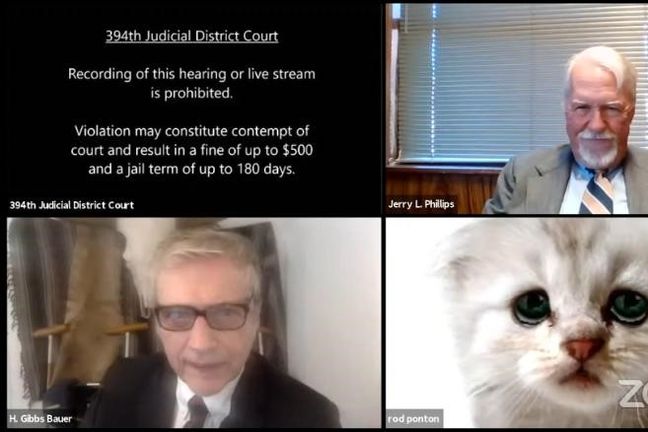As courthouses begin to slowly open their doors following the coronavirus shutdown, attorneys are already filing lawsuits encompassing employment law claims stemming from the coronavirus pandemic. Some trends among these claims are starting to form. This article will explore the types of employment claims being filed related to the coronavirus pandemic and which will likely continue to be filed for the foreseeable future.
FFCRA Claims
Just two months ago on April 1, 2020, the Families First Coronavirus Response Act (“FFCRA”) was enacted. The FFCRA provided over 60 million workers the right to bring claims over unpaid leave in federal court. FFCRA’s purpose is to help those impacted by the coronavirus pandemic. Employers with fewer than 500 employees are subject to the FFCRA.
Three weeks after FFCRA went into effect, the first FFCRA lawsuit was filed: Jones v. Eastern Airlines, LLC. In Jones, an airline’s former director of revenue management filed suit against her former employer and two executives in the U.S. District Court for the Eastern District of Pennsylvania. The former director alleged that she was unlawfully fired for requesting time off to care for her child under the FFCRA. While the viability of the plaintiff’s claim is questionable given her termination was effective before April 1, and these are simply unproven allegations at this point, the Jones case illustrates an alleged retaliatory scenario that employers are likely to continue to see.
There has since been an uptick in FFCRA lawsuits being filed. These lawsuits generally allege that employees were unlawfully denied benefits, were terminated in retaliation for requesting leave, or the employer interfered with an employee’s FFCRA-entitled leave.
Interestingly, unlike most discrimination claims, there is no exhaustion-of-remedies requirement under FFCRA. As such, an employee does not need to first file a charge of discrimination with a governmental agency, such as the U.S. Equal Employment Opportunity Commission, prior to filing suit — unless of course the plaintiff asserts additional claims that require exhaustion. FFCRA claims can be costly because the remedies are the same as those allowed under the Fair Labor Standards Act and the Family and Medical Leave Act. Successful plaintiffs can recover actual damages, liquidated damages, and attorney fees. Additionally, unlike most discrimination claims, individual managers can be sued personally under the FFCRA because the FFCRA adopts the broad definition of employer under the FLSA which includes “any person who acts, directly or indirectly, in the interest of an employer to any of the employees of such employer.”
ADA and FMLA Claims
Employers are likely going to face Americans with Disabilities Act (“ADA”) and Family Medical Leave Act (“FMLA”) claims after dealing with employees with a COVID-19 diagnosis, COVID-19 symptoms, or those who are caring for individuals with a COVID-19 diagnosis or symptoms. The ADA applies to any employer with 15 or more employees.
Under the ADA, the coronavirus is not necessarily a covered disability because the coronavirus is transitory in nature. An employer can be held liable under the ADA under the following circumstances: 1) discrimination because of a disability; 2) discrimination because of a record or history of a disability; or 3) regarding (or believing) an individual is disabled. Employers can also be liable under the ADA for failing to provide a reasonable accommodation to an employee with a disability. Typically an employer can be liable for discriminating against an employee by regarding them as disabled, even if that employee does not actually have an ADA disability. Likewise, certain individuals during this pandemic are at a higher risk for severe illness because they have or have had other impairments. These other impairments may constitute ADA disabilities.
Employers have an obligation under the ADA to engage in the interactive process and potentially provide a reasonable accommodation when requested. Many employers may be overlooking this obligation, for instance, by thinking that because COVID-19 itself is not an ADA disability, employers are under no obligation to provide an accommodation, or by simply denying accommodation requests from essential workers. However, each request needs to be analyzed independently. The ADA leaves no room for assumptions or denials based on COVID-19 or any other condition. Employers must remember that a leave of absence is considered to be a reasonable accommodation under the ADA. As most employers who are subject to the FFCRA (those with under 500 employees) are also subject to the ADA, both laws need to be considered when evaluating possible accommodations.
Employers with 50 or more employees within a 75-mile radius are also subject to the FMLA, which the FFCRA temporarily amended. Under the current circumstances, it would be easy to overlook obligations under the traditional FMLA, especially for employers who are covered by both the FFCRA and FMLA. Employers must remember that FFCRA and FMLA obligations can or will overlap.
Employers not covered by the FFCRA, but who are covered by FMLA, still need to be aware of potential FFCRA litigation for alleged denial of benefits. For example, in Robtoy v. The Kroger Co., filed in April in the U.S. District Court for the Northern District of Indiana, the plaintiff alleged her former employer violated the FMLA and FFCRA after she was denied paid leave under Kroger’s policy (leave taken because of COVID-19 symptoms) and later terminated.
Conclusion
Given the rise of employment claims stemming from the coronavirus pandemic, employers should be careful when dealing with any employees regarding issues of health. Employers should keep all lines of communication open with their counsel and be sure to seek advice when confronting issues of dealing with issues of health with employees to set themselves up for all success possible in the event a lawsuit is filed.

 Author: Rachel Donnelly
Author: Rachel Donnelly
 Cannabis Workers Allege Quota to Trim 4 Pounds a Day Violates the California Labor Code
Cannabis Workers Allege Quota to Trim 4 Pounds a Day Violates the California Labor Code
 The Ninth Circuit Reminds Us: Every Word Matters
The Ninth Circuit Reminds Us: Every Word Matters
 NO WAY, PRO SE! The Consequences of Abusing the Judicial System as a Pro Se Litigant in Colorado
NO WAY, PRO SE! The Consequences of Abusing the Judicial System as a Pro Se Litigant in Colorado
 Victim of Financial Mismanagement or Unlawful Retaliation? New Jersey City University Program Founder Claims School Retaliated After Reporting Alleged Sexual Harassment
Victim of Financial Mismanagement or Unlawful Retaliation? New Jersey City University Program Founder Claims School Retaliated After Reporting Alleged Sexual Harassment
 “Real Housewives” Gets a Reality Check
“Real Housewives” Gets a Reality Check
 Missing a Chapter: Insufficiency of Expert Deposition Testimony in Medical Malpractice Litigation
Missing a Chapter: Insufficiency of Expert Deposition Testimony in Medical Malpractice Litigation
 Crash Course: Why Summary Judgment Misses the Mark in Illinois Multi-Cause Limousine Crash Collision
Crash Course: Why Summary Judgment Misses the Mark in Illinois Multi-Cause Limousine Crash Collision
 Bitter Truths: Lead, Cadmium, and Defective Pleadings in California Chocolate Class Action
Bitter Truths: Lead, Cadmium, and Defective Pleadings in California Chocolate Class Action
 The Law of Unintended Consequences: Including Insurance Brokers in Litigation Strategy Communication May Waive the Attorney-Client Privilege
The Law of Unintended Consequences: Including Insurance Brokers in Litigation Strategy Communication May Waive the Attorney-Client Privilege
 You Poetic, Noble Land Mermaid: A Celebration of “Galentine’s Day”
You Poetic, Noble Land Mermaid: A Celebration of “Galentine’s Day”
 A Tell-All Article on Written Discovery Objections
A Tell-All Article on Written Discovery Objections
 How to Avoid Appearing as a Cat and Other Helpful Virtual Deposition Tips
How to Avoid Appearing as a Cat and Other Helpful Virtual Deposition Tips
 California Court Refuses to Reduce a $9.25 Million Award
California Court Refuses to Reduce a $9.25 Million Award
 Discovery of Litigation Funding Documents
Discovery of Litigation Funding Documents
 Autonomous Vehicle Legislation
Autonomous Vehicle Legislation
 Recent Discovery in Injuries Stemming from “Vaping”
Recent Discovery in Injuries Stemming from “Vaping”